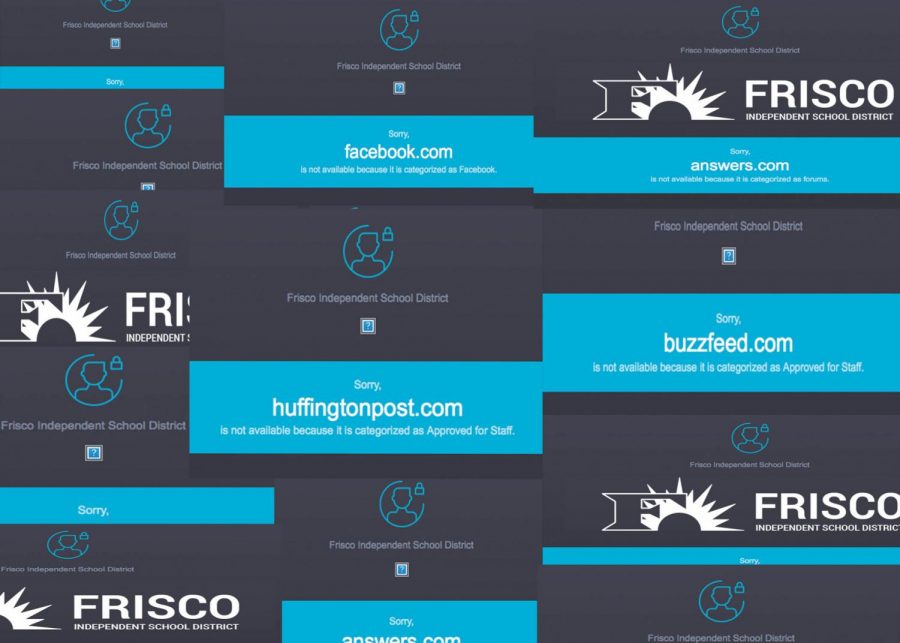Are Web Filters Too Restrictive?
April 19, 2018
Nearly every day, we use our phones or some kind of technology at school. Whether it be for our own personal use or a school project, we always run into at least one site that’s blocked.
The problem with web filters is that they are simply too restrictive. It’s understandable that some sites be blocked due to their content, but other sites are restricted just due to the fact that it’s a sensitive topic- topics that we have to research for assignments sometimes.
The restrictions of these sites make it hard to finish work and/or projects. It’s truly frustrating because some of the websites could contain crucial information. Who wants to go home to do a project that could’ve been easily done at school?
“I think that certain websites do need to be blocked,” sophomore Anisha Zaman said. “I don’t think that sites like The Huffington Post or The New York Times should be blocked because they can be beneficial to assignments.”
Social media sites should not be blocked either. Although it can cause distractions, it can help gather opinions for an assignment or be useful as news is sometimes gathered from social media sites, like Twitter.
I believe that these problems could be easily resolved if the district made different websites blocked depending on the grade that the students are in. High school students should have less restrictions on school WiFi than elementary students, yet they both have the same website restrictions.
Although website restrictions probably won’t change anytime soon, we can still dream of the day our favorite social media sites are no longer blocked. Until then, we will have to put up with the constant error messages that pop up onto our screens.


